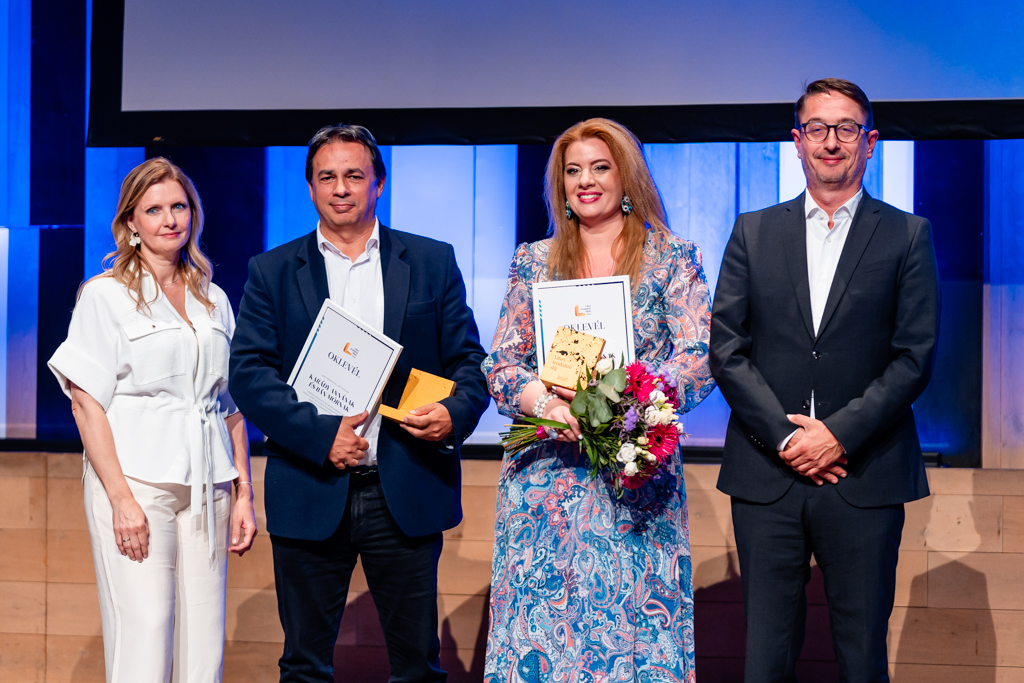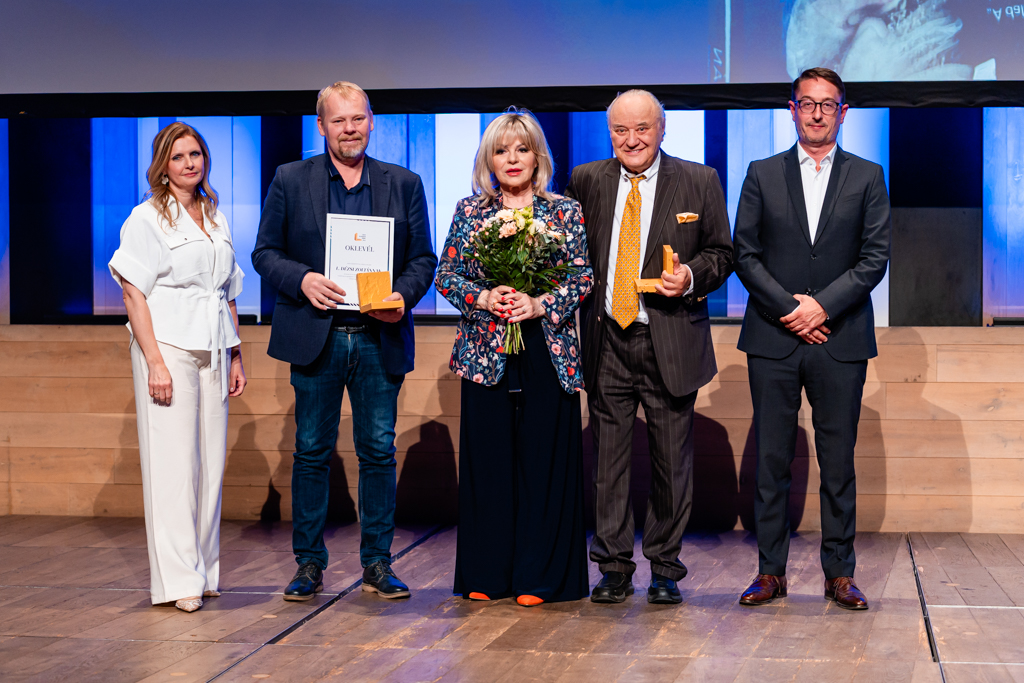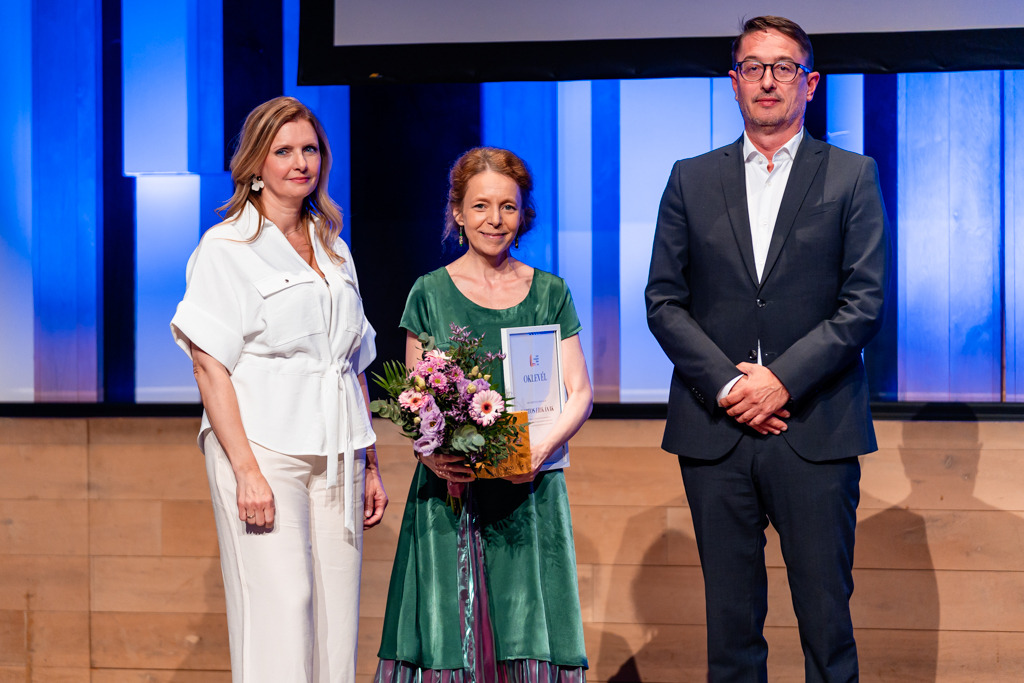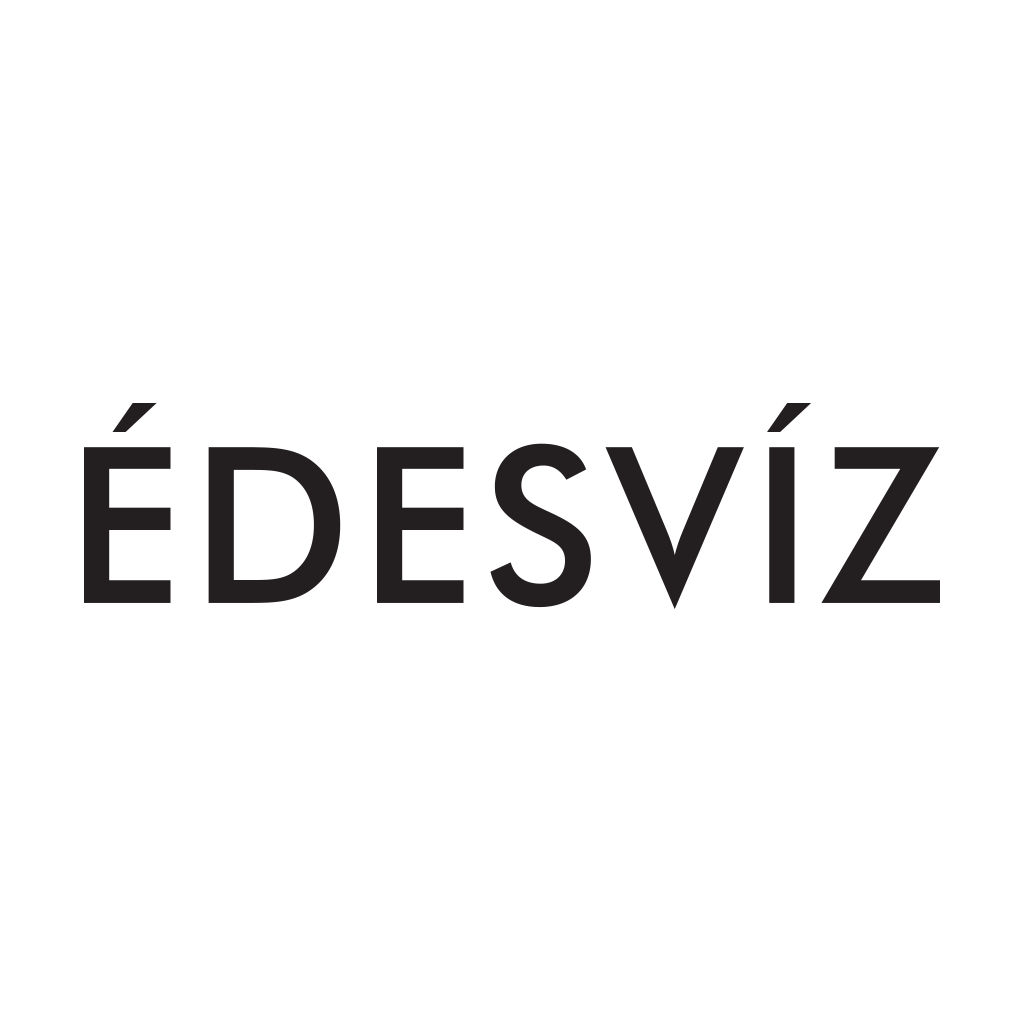At this year’s celebration of literature, readers’ favorites were recognized in 12 categories.
Tamás Náray, Bea Bibók, Marcsi Borbás, Erika Bartos, Anna Karády, Mór Bán, Emeran Mayer, and Edith Eva Eger are among those who received this year’s Libri Literary Prizes. The book retailer rewarded the most successful books of 2024 based on readers’ votes, and in addition to the categories overhauled last year, this year saw the first-ever prizes awarded for the most-read psychology and gastronomy books. At the gala associated with the Festive Book Week, poet Ottó Tolnai, writer István Csukás, and graphic artist Ferenc Sajdik were honored with memorial and lifetime achievement awards for their work.
This year, Libri is once again drawing attention to the outstanding achievements of the domestic book industry and readers’ favorite books. The book retailer first presented literary prizes in 2016, and in 2024—after a one-year hiatus—the most widely read authors of the year received the prestigious award in even more categories than before. The Libri Literary Prizes were presented at a ceremony held on June 13 at the Budapest Music Center as part of the Festive Book Week.
“Reading and the value-creating power of books are perhaps even more important now than ever before. At Libri, we are aware of this task and responsibility, and we work every day to ensure that our books can reach all the places where they are needed. However, without authors and readers, all this would be an impossible mission,” said Gyula Köbli, managing director of Libri, at the award ceremony.

Libri, as a committed supporter of culture, considers the promotion of reading and contemporary Hungarian literature as one of its main tasks. As part of its social responsibility, its goal is to share the books of authors who have greatly contributed to the enrichment of our intellectual and cultural heritage with as wide an audience as possible. In their ninth season, the Libri Literary Prizes will once again evaluate readers’ choices, with a total of 12 expanded categories for this prestigious award.
“We love all books, all styles and genres equally, and we believe that outstanding achievements can be found in any category. It is extremely exciting to see which topics and authors attract readers’ attention each year. We want to reflect their choices with the Libri Literary Prizes—that is, we recognise the most widely read and most popular books with the prizes awarded,” added Orsolya Stefanie Ludvig, Libri’s marketing and communications director.
In 2024, Tamás Náray‘s novel Apám szerint (According to My Father) became the favorite work of fiction of the year. Although Náray was unable to attend the award ceremony in person, he explained in a video message why he considers the Libri Literary Prize so important: “We creative people tend to say that we don’t work for awards. However, there are valuable awards and more valuable awards – for me, the latter include those awarded by the public, because ultimately we work for the public, our readers.”

In 2024, Emerald Mayer‘s book A bél-agy kapcsolat (The Gut-Brain Connection) became the audience’s favorite of the year, while one of the most popular authors in the field of psychology of our time, Edith Eva Eger, was recognized for her work A balerina (The Ballerina) in the non-fiction category. The award for the most successful debut book of the year went to Zoltán L. Dézsi for his book, A Korda (Korda). In addition to domestic bestsellers, the most popular work of fiction beyond Hungary’s borders was also recognised. This year, the award for the most successful book abroad went to Mór Bán and Anna Karády for their collaborative novel Lillafüredi karácsony (Christmas in Lillafüred).
The authors spoke with particular emotion about their work and the popularity of their spy thriller across borders: “Every writer dreams of their story reaching far and wide, so it’s a very special feeling for me that our novel has been so well received in Transylvania, Upper Hungary, Vojvodina, Carpathian Ruthenia, and anywhere else where Hungarian is understood,” said Anna Karády. Her co-author, Mór Bán, added: “It’s fantastic that our book has become so popular beyond our borders. It gives me particular joy that an entertaining novel can be a source of amusement and relaxation anywhere in the world, in any corner of the globe. I hope that the story we have written truly speaks to the entire nation.”
Once again, the most significant authors of children’s literature and their works occupy a prominent place among the winners of the Libri Literary Prizes. The Children’s Book of the Year award went to Erika Bartos, author of Ki kicsoda? (Who’s Who?), the latest volume in the Bogyó and Babóca series, which is the first book experience for many young children. In the children’s literature category, the authors of Pom-pom mesék (Pom-pom Tales) and A nagy ho-ho-ho horgász (The Great Fi-fi-fi Fisherman) series, which have been influential reading and cartoon experiences for generations, were recognized with a lifetime achievement prize given to writer István Csukás (posthumously) and graphic artist Ferenc Sajdik.

The award for historical non-fiction book of the year went to Gábor G. Fodor‘s Orbán kontra Soros (Orbán versus Soros), while the award for the most successful business book of 2024 was presented to Dávid Sólyomi for his work Túl az osztalékon (Beyond the Dividend). This year, for the first time, awards were also presented for the best psychology and gastronomy books of the year, with Bea Bibók receiving recognition for her self-help book Ellopott felnőttkor (Stolen Adulthood), while last year’s award for the best gastronomy book went to Marcsi Borbás for her publication Magyarország finom (Hungary is Delicious). The Libri Literary Memorial Prize was also presented to contemporary poet Ottó Tolnai, who passed away this spring at the age of 84, for his selection of poems entitled Wilhelm-dalok (Wilhelm Songs), first published in 1992.
Authors’ prizes
- In the category of audience favorite of the year, Emerald Mayer: A bél-agy kapcsolat (Kulcslyuk Publishing)
- In the category of fiction book of the year, Tamás Náray: Apám szerint (Libri Publishing)
- In the category of non-fiction book of the year, Edith Eva Eger: A balerina (Openbooks)
- In the category of the most successful debut book of the year, Zoltán L. Dézsi: A Korda (Free Spirit Publishing)
- In the category of historical non-fiction book of the year, Gábor G. Fodor: Orbán kontra Soros (Public Foundation for Research into Central and Eastern European History)
- In the category of business book of the year, Dávid Sólyomi: Túl az osztalékon (A4C Books)
- In the category of the most popular book of the year beyond the border, Mór Bán – Anna Karády: Lillafüredi karácsony (Hitel Publishing)
- In the category of children’s book of the year, Erika Bartos: Bogyó és Babóca – Ki kicsoda? (Self-published – Pozsonyi)
- In the category of psychology book of the year, Bibók Bea: Ellopott felnőttkor (Libri Publishing)
- In the category of gastronomy book of the year, Marcsi Borbás: Magyarország finom (Stratcomm. Kft.)
Memorial and lifetime achievement prizes
- In the Libri Literary Memorial Prize category, Ottó Tolnai: Wilhelm-dalok (Jelenkor)
- In the Lifetime Achievement Prize in Children’s Literature category, István Csukás and Ferenc Sajdik, illustrator











